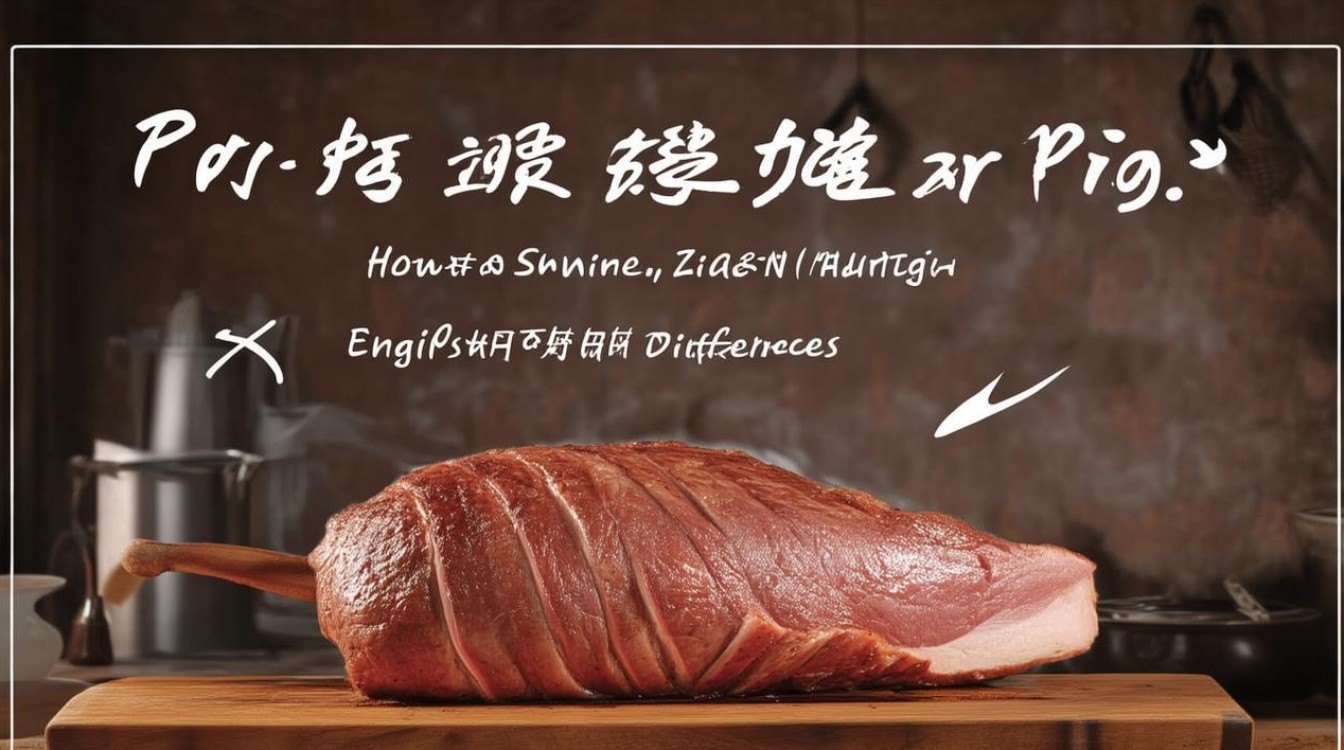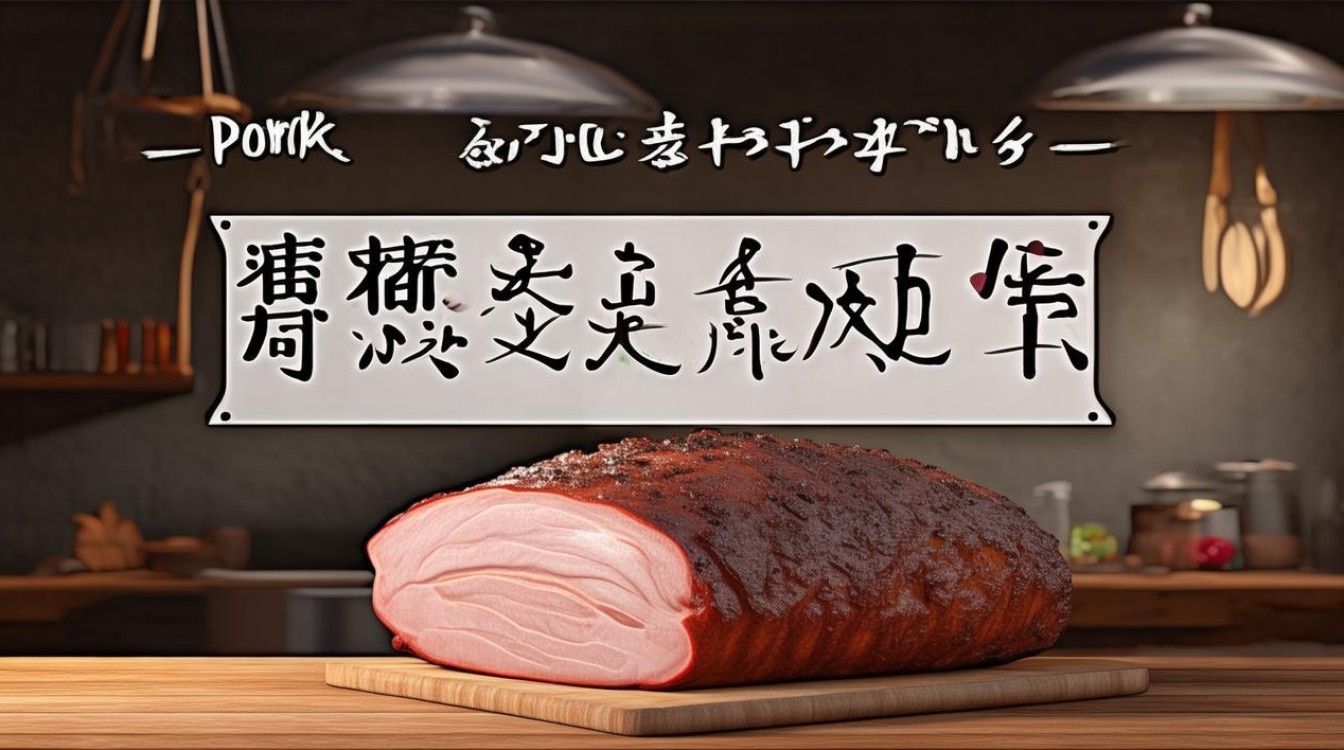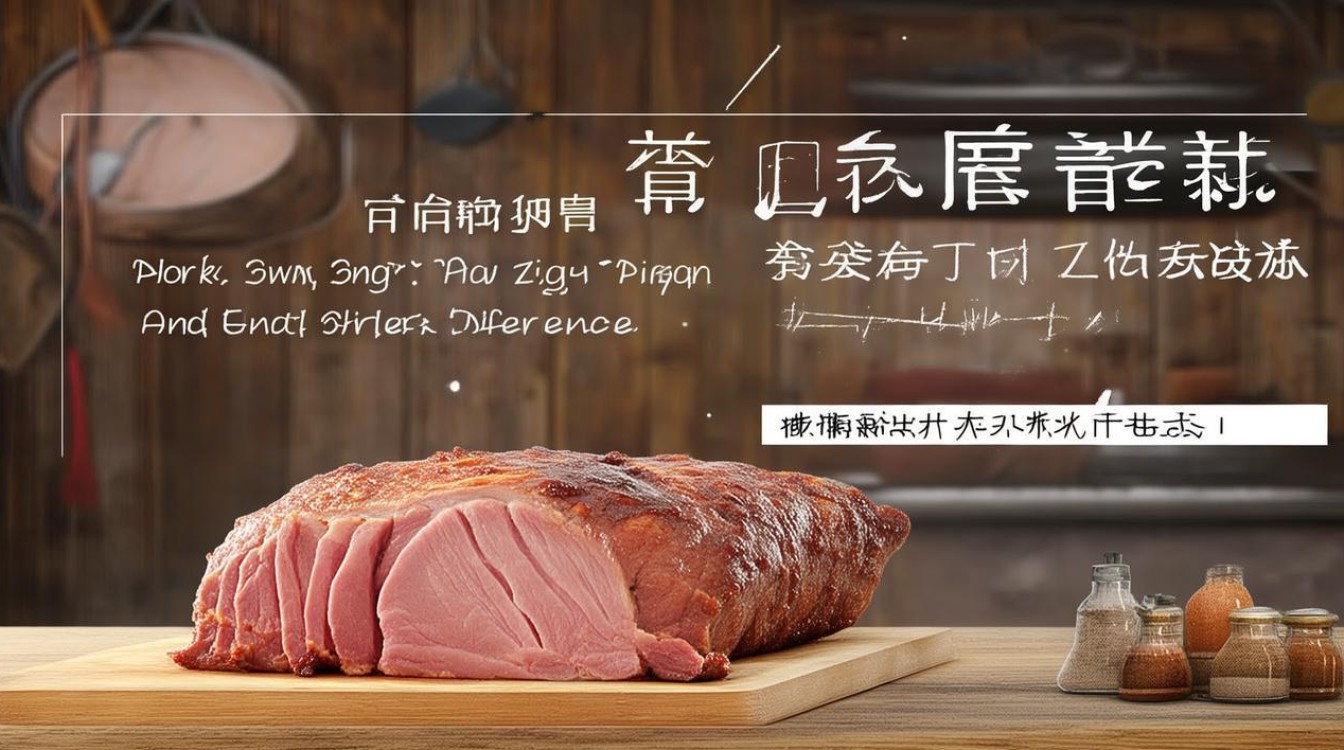When learning English, food vocabulary is essential, especially for meat terms. If you're wondering how to say "猪肉" in English, the most common translation is "pork." However, depending on context, you might also encounter words like "pig," "swine," "hog," or "boar." Understanding these terms helps avoid confusion in conversations, menus, or recipes.

Pork: The Standard Term for Meat
"Pork" specifically refers to the meat from pigs used for cooking. Unlike Chinese, where "猪肉" directly includes the animal name ("猪"), English separates the live animal ("pig") from its meat ("pork"). This distinction is common in English:
- Cow (牛) → Beef (牛肉)
- Sheep (羊) → Mutton (羊肉)
- Pig (猪) → Pork (猪肉)
Example sentences:
- "I bought some fresh pork for dinner."
- "This restaurant serves delicious roasted pork."
Pig vs. Swine vs. Hog: What’s the Difference?
While "pork" is the meat, other terms describe the animal itself:
-
Pig: The general term for the animal, regardless of age or size.
Example: "The farmer raises pigs on his farm."

-
Swine: A more formal or scientific term, often used in agriculture or medicine.
Example: "Swine flu is a disease affecting pigs and humans."
-
Hog: Typically refers to an adult pig raised for meat, especially one weighing over 120 pounds.
Example: "They slaughtered the hog for the festival."
-
Boar: A male pig, often wild. In cooking, "wild boar" refers to meat from non-domesticated pigs.

Example: "Wild boar meat has a stronger flavor than pork."
Common Pork Cuts in English
Knowing pork-related vocabulary is useful for cooking or ordering food. Here are key terms:
- Pork chop: A slice of meat from the loin, usually with a bone.
- Bacon: Cured and smoked pork belly or back cuts.
- Ham: Cured or smoked pork from the hind leg.
- Ribs: Pork ribs, often barbecued or roasted.
- Sausage: Ground pork mixed with spices, stuffed into casings.
Example:
- "She grilled pork chops with garlic and herbs."
Pork in Cultural and Dietary Contexts
Pork is widely consumed globally but holds different significance across cultures:
- Western Cuisine: Pork is a staple in dishes like German sausages, Italian prosciutto, and American pulled pork.
- Religious Dietary Laws: In Islam and Judaism, pork is forbidden (halal/kosher rules).
- Chinese Cuisine: Pork is central to many dishes, like char siu (叉烧) or dumplings.
Avoiding Common Mistakes
Learners sometimes mix up these terms. Remember:

- "Pork" is always the meat. Saying "I eat pig" sounds unnatural (though understandable).
- "Swine" is rarely used in daily speech unless discussing farming or science.
- "Bacon" and "ham" are specific pork products, not general terms for pork.
Practical Tips for Remembering
To master these words:
- Label items in your kitchen (e.g., stick a note saying "pork" on meat packages).
- Watch cooking shows or read recipes in English.
- Practice ordering food: "I’d like a pork sandwich, please."
Why This Matters for English Learners
Precise vocabulary prevents misunderstandings. Imagine asking for "pig meat" instead of "pork"—it’s grammatically correct but sounds odd to native speakers. Similarly, knowing "bacon" versus "ham" helps when reading menus.
Pork is a versatile ingredient, and its terminology reflects English’s nuances. Whether you’re a food lover, traveler, or language learner, understanding these words makes communication smoother. Next time you see "pork" on a menu, you’ll know exactly what it means—and why it’s not called "pig meat."
The key is practice. Try using these words in sentences today, and soon they’ll feel natural. After all, language learning is like cooking: the more you experiment, the better the results.


